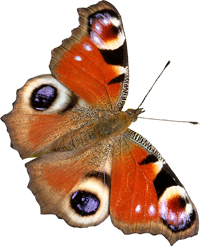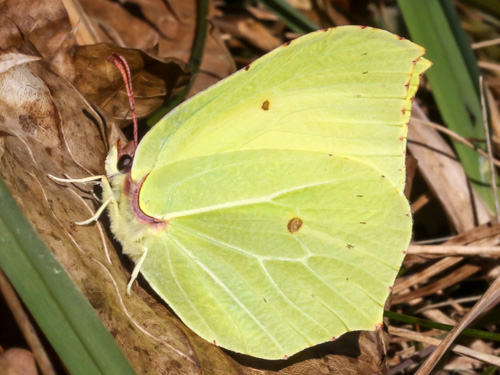
Valais, Switzerland, February 2021
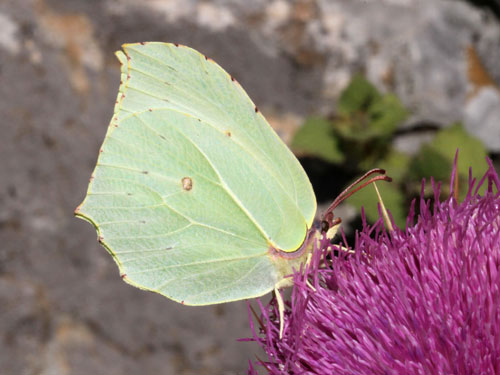
S Greece, June 2013
Field notes and information
Found across much of Europe, it's a common sight in many regions in early spring as hibernated males emerge in the first warm days of spring. As a "butter-coloured fly" this species may well have been the origin of the English "butterfly".
Identification & Similar species: The other Gonepteryx species are similar. The bright orange of the male cleopatra, G. cleopatra, is very distinctive. The powdered brimstone, G. farinosa, is difficult to separate. It is confined to the south Balkans where it is usually very local and difficult to find. The male forewings are powdered with andriconal scales giving it a rough texture. This is absent in the current species.
Females of all species are rather more tricky to identify, although wing shape is a useful guide.
Distribution & Flight: Throughout Europe except the far north. North Africa. Single brooded in June/ August then entering hibernation and emerging in March/ April.
Habitat & Behaviour: Frequently seen flying along hedges and woodland edges and feeding on garden flowers.
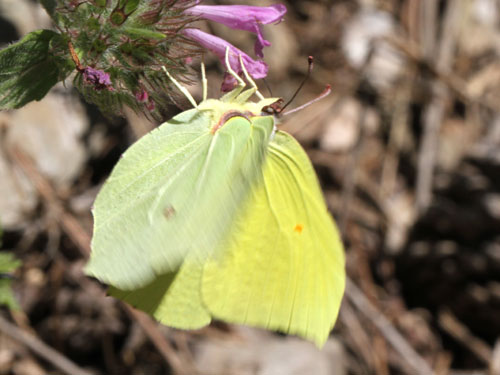
Peloppensos, Greece, June 2013
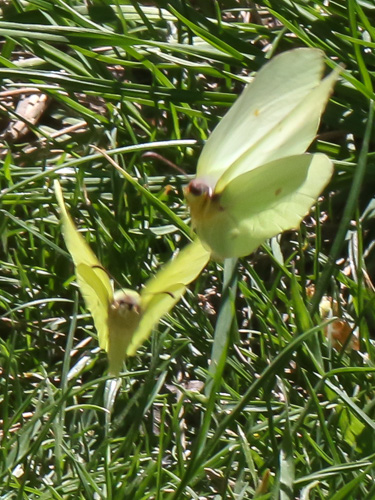
Valais, Switzerland, April 2021
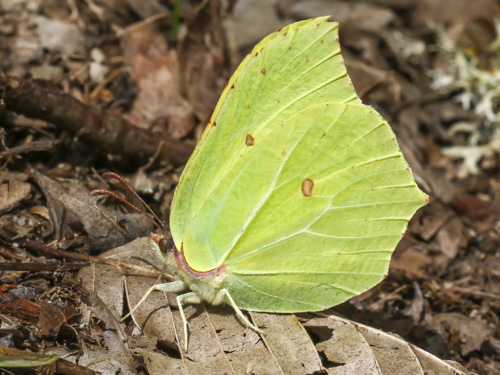
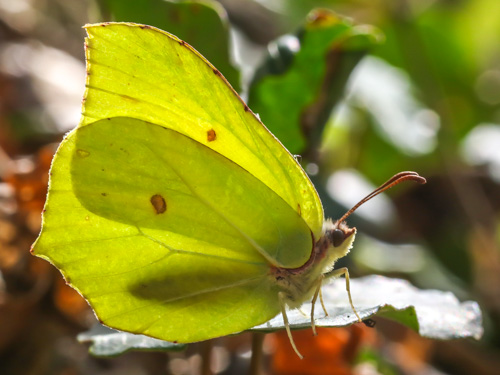
Geneva, Switzerland, April 2021
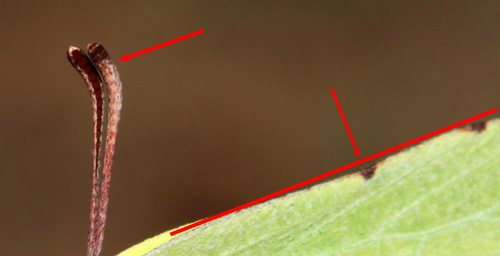
Peloppenessos, Greece, June 2013
Leading edge of forewing is clearly concave separating this species from both the cleopatra G. cleopatra and the powdered brimstone G. farinosa. Antennal club is not white which may separate it from the powdered brimstone G. farinosa.
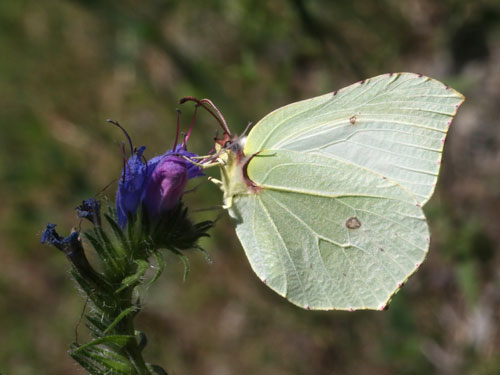
Valais, Switzerland, July 2016
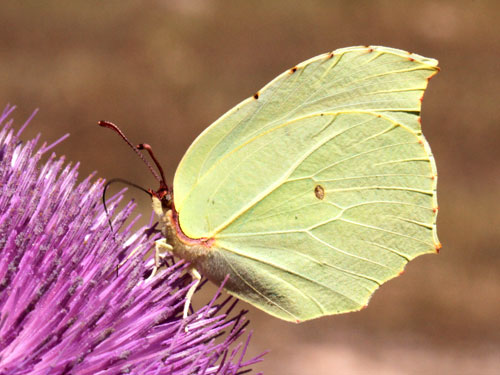
Peloppensos, Greece, June 2013
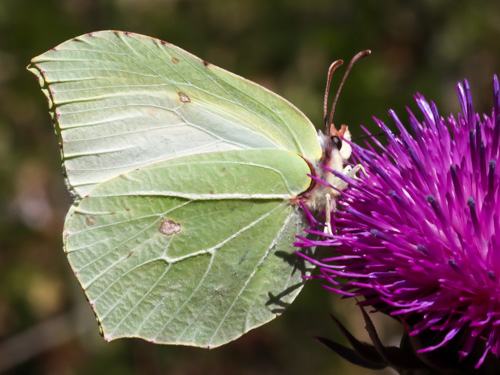
Valais, Switzerland, April 2020
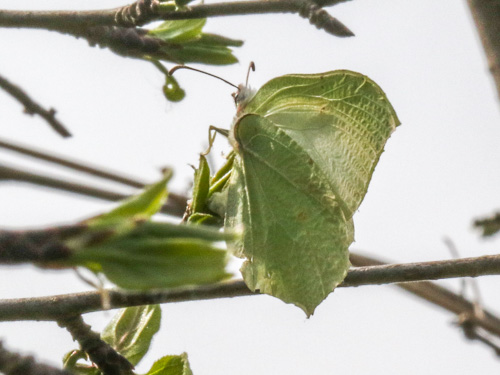
Vaud, Switzerland, April 2018
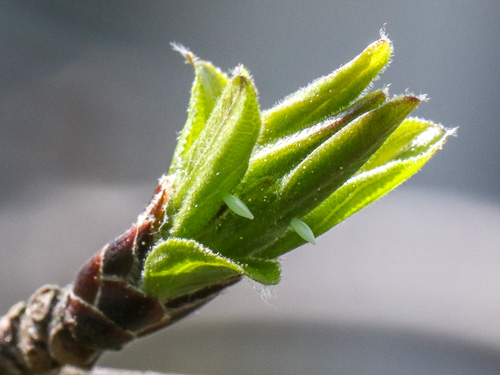
Vaud, Switzerland, April 2018
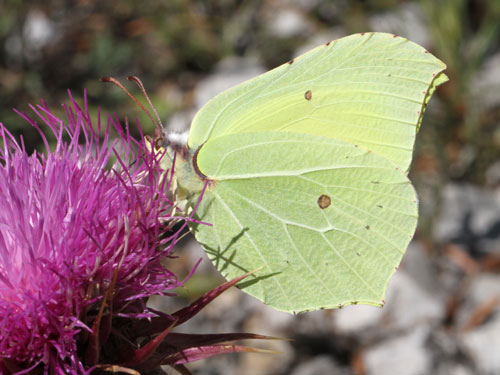
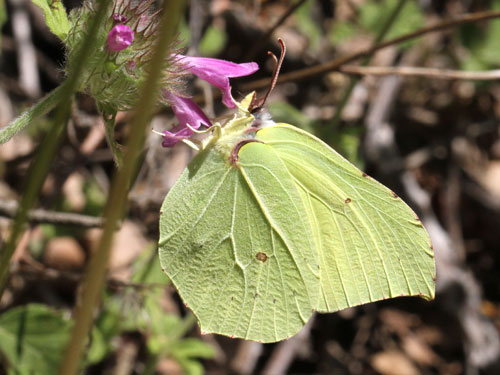
S Greece, June 2013
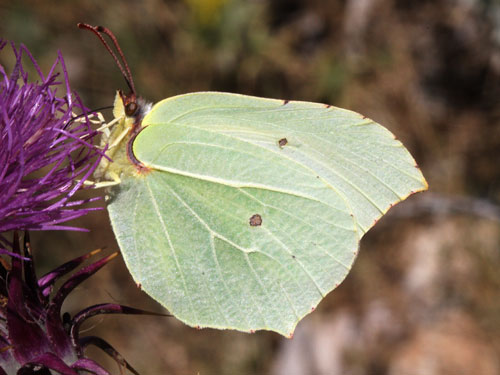
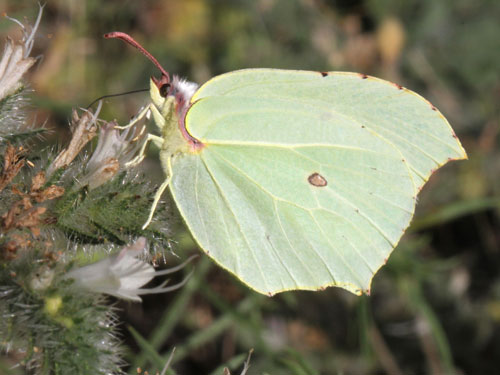
Peloppensos, Greece, June 2013
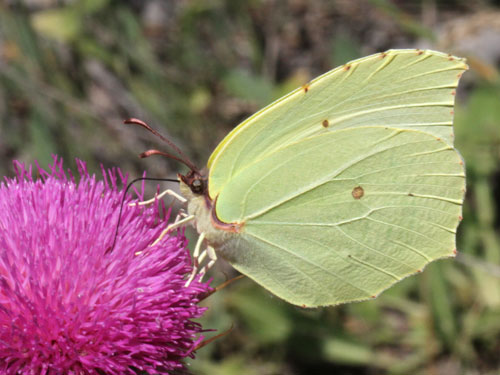
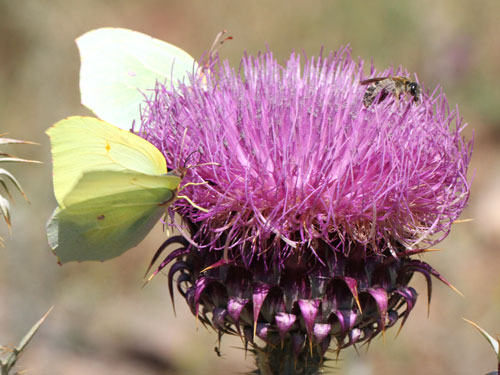
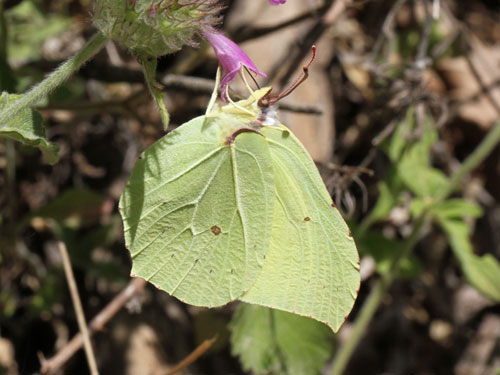
S Greece, June 2013
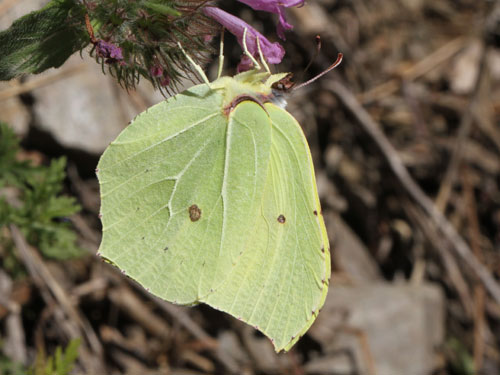
Peloppensos, Greece, June 2013
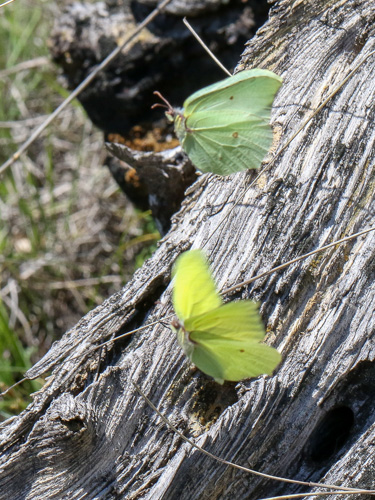
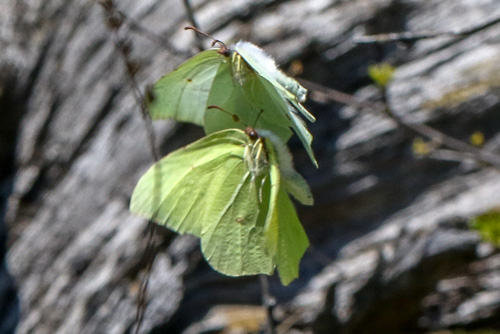
Valais, Switzerland, April 2017
Courtship.
